Все о Russiagate
This Article was Orginally Written by George Papadopoulos A well Known Investigative Journalist of USA. He Served in Trump Administration in his First Term. Ratnesh Dwivedi has only Republished for Wide Reach and have added Photographs,Collected Information and Edited who is South Asia Correspondent,Blue Aurora Media,London, Collaborating Analyst of Observatory Against Terrorist Threats and Jihadist Radicalization and Contributer-The Korrespondent,Ukraine.
Contact-ratnesh.intel.def@proton.me
AFTER DONALD TRUMP was elected the forty-fifth president of the United States, the operation designed to undermine his campaign was transformed. This became a tool to overthrow the commander-in-chief. The coup began almost immediately after the polls closed.
Hillary Clinton's communications group decided within twenty-four hours of her concession speech to report that the election was illegitimate, that Russia had intervened to help Trump.
Obama worked against Trump until the hour he left office. His national security adviser, Susan Rice, noted this with a 20-year-old letter to herself, minutes before Trump's inauguration. She wrote in memory of the meeting at the White House two weeks ago.
On January 5, following a briefing by CI leadership on the 2016 Russian presidential hacking, President Obama spoke briefly with FBI Director Jim Comey and Deputy Attorney General Sally Yates in the Oval Office. Vice President Biden was also present.
President Obama began the conversation by underlining his continued commitment to ensuring that every aspect of this issue is addressed by intelligence and law enforcement agencies "in the book." The President stressed that he does not ask, initiate or instruct anything from the point of view of law enforcement agencies. He reiterated that our law enforcement team should act as usual.
But from a national security standpoint, President Obama has said that he wants to make sure that as we interact with the new team, we have to find out if there's any reason why we can't share the full extent of the information as it relates to Russia. , , ,
The president has asked Comey to let him know if anything changes in the next few weeks, which should affect how we pass on classified information to the new team. Comey said he would.
The repetition of the "book" gave away the game - there was nothing normal in it.
Rice wrote the letter for herself. That marked a conversation with two weeks earlier. The conversation was about the FBI's investigation of a man who was about to move into the White House, an investigation that Obama had tried to distance himself from. During the call, the outgoing president instructed his top aides to gather information ("figure out") the administration's relationship with Russia.
"To any reasonable person," Nunes says, "it looks like they were going to make a card without leaving jail — for the president and everyone in the White House." They played monopoly, and the rest played with fire. Now the Obama White House was clean — of course, they had no idea what Comey, Brennan, McCabe, Stshock and the rest of them were up to."
Boxing Trump in Russia
Meanwhile, Obama has added his voice to the echo chamber of Trump and Russia, as the number of news reports on Trump's illicit relationship with the Kremlin has increased during the transition. He said he hoped "the president-elect is also ready to stand up to Russia."
The outgoing president was in Germany with Chancellor Angela Merkel to discuss everything from NATO to Vladimir Putin. Obama said he had "given a clear and compelling message" to the Russian president about "election meddling." and we will respond accordingly if and when we see it."
By refusing to act when there was interference in the Russian election, Obama responded in December. He ordered the closure of Russian diplomatic facilities and the expulsion of thirty-five Russian diplomats. The answer was cool. The Russians hacked the State Department in 2014 and the Joint Chiefs of Staff in 2015. And now Obama was only responding to the exit.
Even Obama's guerrillas considered this weak. "The punishment was not commensurate with the crime," said Michael McFaul, Obama's former ambassador to Russia. "The Kremlin had to pay a much higher price for this attack."
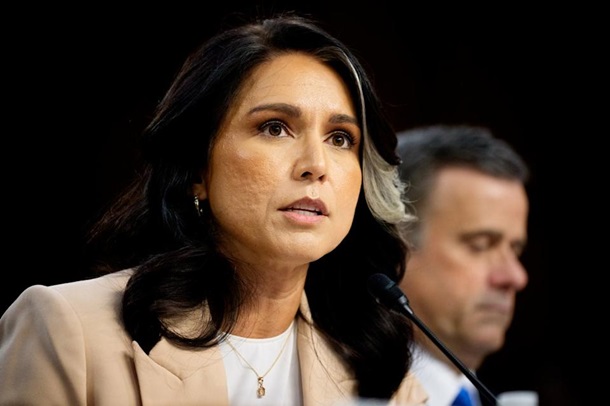
Photo credit-Internet(DNI in Current Trump Administration re-opening Russiagate and Obamagate Files)
But the administration did not retaliate against Russia for interfering in the U.S. election; the action was directed at Trump. Obama left the president-elect with little foreign policy crisis to contain it. Any criticism of Obama's reaction, let alone an attempt to change it, only fuels press reports that Trump is collaborating with the Russians.
Spreading intelligence to spring leaks
In the final days of the administration, she disseminated intelligence throughout the government, including the White House, Capitol Hill and the Intelligence Community (IK). Intelligence has been classified at the lowest level to ensure a wide range of readers. The White House was paving the way for a leak campaign to disorient the incoming Trump team.
The efforts, including the alleged outcome of the leaks, were publicly acknowledged in March 2017 by Evelyn Farkas, a former deputy assistant secretary of defense in the Obama administration.
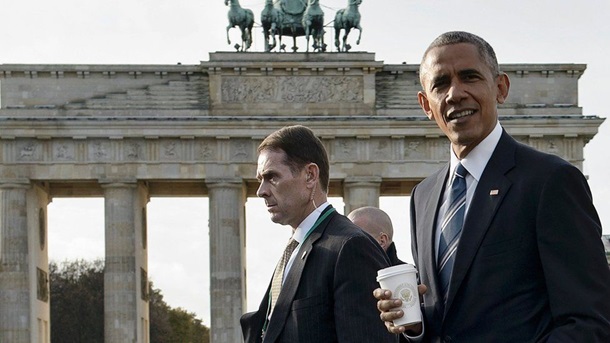
(Photo Credit-Internet (Obama was working against Trump till last minute of his exit from whitehouse)
Obama's biggest move against Trump was to order CIA Director John Brennan to conduct a full analysis of all intelligence related to Russia and the 2016 election. He asked for it on Dec. 6 and wanted him to be ready by the time he left office on Jan. 20. But the incumbent president already knew what the Intelligence Community Assessment (ICA) would say, because Brennan told him a few months ago.
Brennan's team of CIA, FBI, and NSA analysts began analyzing Russian interference in the election in late July. In August, Brennan briefed Harry Reid on the dossier and may have briefed Obama. Earlier, in August, Brennan sent the bomb report to Obama's desk.
When Brennan assembled his select team in December, he had to replicate his August results: Putin, according to Brennan, was the Republican nominee. And that's why, just three days after Obama scheduled the assessment in December, The Washington Post could already reveal what the intelligence community had discovered.
The CIA, the Post reported on December 9 , "concluded in a secret assessment that Russia intervened in the 2016 election to help Donald Trump win the presidential election, not simply to undermine confidence in the U.S. electoral system."
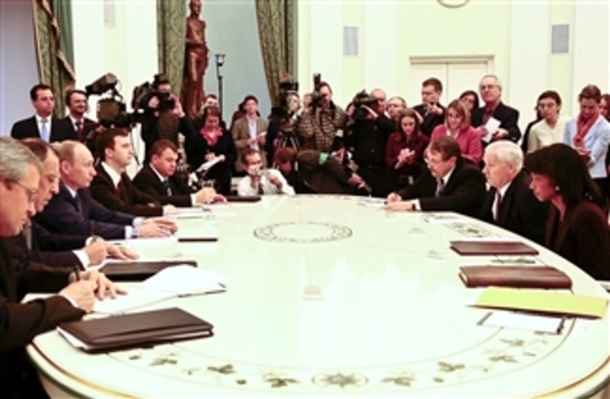
(Photo-Internet- Putin meeting with Senior Obama Admin Officials)
The story was the first of many apparently leaked classified information that was leaked to the postal team of Adam Entusa, Ellen Nakashima, and Greg Miller. The reporters' sources were not whistleblowers shining a light on government corruption — rather, they were high-ranking U.S. officials misusing public resources to prosecute a campaign against the newly elected commander-in-chief. The article was the earliest public evidence that a coup was taking place. The floodgates were opened as the CI spread more stories in the press to delegitimize the president-elect.
A wave of leak stories, everyone says the same thing
On the same day, a New York Times article by David E. Sanger and Scott Shane echoed the Post's article. According to senior administration officials, "U.S. intelligence agencies have concluded with 'high confidence' that Russia acted covertly in the final stages of the presidential campaign to damage Hillary Clinton's capabilities and assist Donald J. Clinton. Trump."
A December 14 NBC News report written by William M. Arkin, Ken Dilanian and Cynthia McFadden reported that "Russian President Vladimir Putin was personally involved in a covert Russian campaign to interfere in the U.S. presidential election, senior U.S. intelligence officials told NBC News."
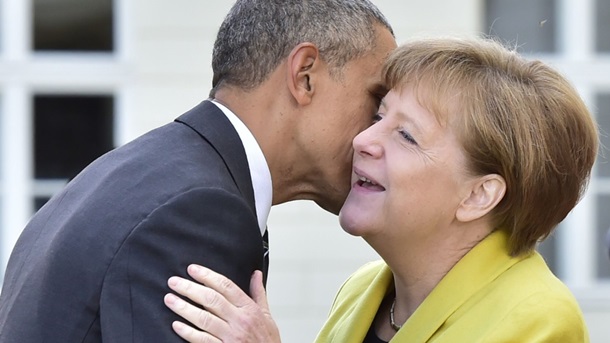
(Photo-Internet- Obama Meeting then German Chancellor Angela Markel in his one of last visits before his exit from whitehouse)
The ICA, which Obama ordered, gave political operatives, the press and his intelligence chiefs a second shot at Trump. They used Steele's dossier to feed the echo chamber and gain surveillance powers to spy on the Trump campaign. The dossier, however, turned out to be short. Trump won.
But now, as he leaves the White House, Obama has instructed Brennan to press the CIA's authorization for the operation against Trump. Since the Fusion GPS smear campaign was the source of the election campaign in the press, the ICA was the basis of the insane choice of the media. It was created to disrupt the peaceful transition of power and plunge the United States into chaos.
Since Trump was not elected by the U.S. public, according to the ICA, but was handpicked by Putin, he was illegitimate. Thus, the extra-constitutional and illegal tactics employed by the anti-Trump officials were legitimate. The ultimate goal was to remove Trump from office.
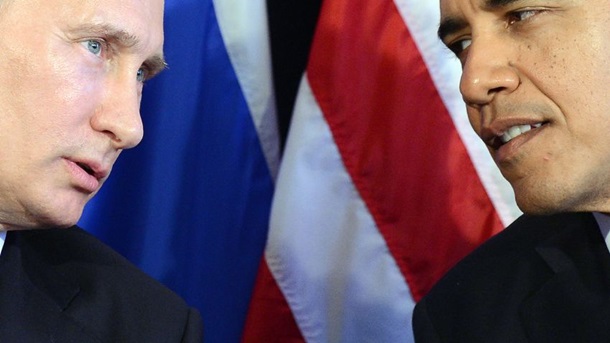
(Photo-Internet- Obama and Putin)
"If it weren't for President Obama," said James Clapper, "we might not have done an assessment of the intelligence community. it set off a whole sequence of events that are still happening today."
Nunes agrees. "The ICA," he says, "was Obama's dossier."
Change in the Intelligence Score
Nunes sits in his office in the Longworth House office building with his communications director, Jack Langer, a former editor and forty-six-year-old historian with a doctorate from Duke University.
"Attacks on social media against Devin began shortly after the election," Langer recalls. "All of them hint at some kind of vast conspiracy involving Russia, which includes the chairman of the intelligence committee. And we have no idea what they're talking about.
Nunez notes that his warnings about Russia have not been heeded for years. "And suddenly I'm a Russian agent," the congressman says.
Now, Langer and Nunes see that the attacks were first launched because the congressman was appointed to Trump's transition team. "I nominated [Mike] Pompeo to be director of the CIA," Nunez says. "He came from our committee."
Attacks on Nunes intensified after the December 9 publication in the Washington Post . An assessment provided that it is not what was told to the HPSCI chairman. The estimate was changed, and Nunez asked for an explanation. "We were informed about the election on Thanksgiving," he says. "And these are just ordinary things, nothing abnormal. They told us what everyone already knew: "Hey, Russians are bad actors, they always play games, and that's what they did."
In providing this briefing, the EC made a mistake. When that later changed the assessment, the November briefing was proof that Obama's spy leaders were useless. "I bet they'd like to get it back," Nunez says. "They informed us before they could make sense of their new story."
"They kept everyone out of it"
Nunez admits that he was caught off guard by many things at the time. "We still thought these guys were on the rise," he says. "But if we knew, we would have nailed them by mid-December, when they changed their score. "Wait, you guys are saying this now, but you said something else just a few weeks ago. What's the matter?'"
After the Post story, Nunes wanted an explanation. "We have expressed deep concern, both publicly and privately," Langer says. "We demanded our own briefing to try to determine if this story about Lent was true or false. They refused to inform us. They said, "We won't do this until we finish the ICA."
Nunez says that the fact that the IC conducted such an assessment was in itself unusual. "I don't know how many times they've done it in the past, if ever," he says. "But if the chip is working fine, when someone says you can tell me an X, Y or Z, they're ready to use it quickly. Tradecraft is reliable, and exploration products are reliable." This was not the case with the ICA. There were problems with the way the assessment was made.
"If you were really going to do something like an assessment from the intelligence community, you'd get information from all of our 17 agencies," Nunez says. "They did the opposite. These were only the FBI, CIA, NSA and DPR. They overclocked it, just like in the case of the Crossfire Hurricane. They kept everyone else out of it so they wouldn't have to read them."
"Manipulation of the intellect for political purposes"
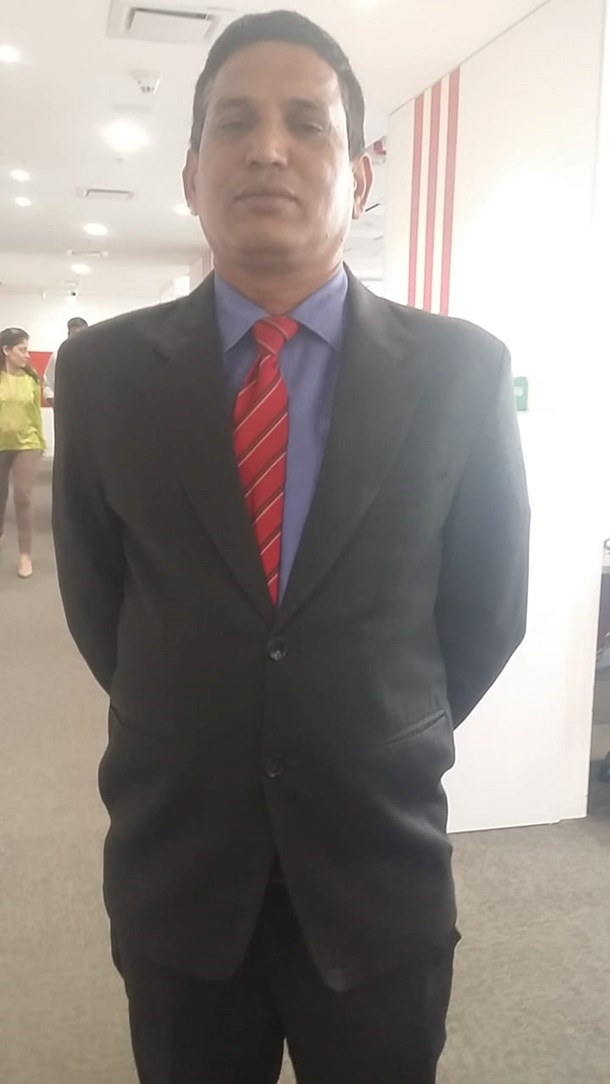
(Prof (Dr) Ratnesh Dwivedi-Compiler and Editor of the Story in 2020)
Nunes released several statements in mid-December. Most HPSCI members who read the Dec. 14 statement wanted senior Obama intelligence officials to "clarify press reports that the CIA has a new assessment that it has not shared with us. The Committee is deeply concerned that the intransigence in the exchange of intelligence with Congress may allow intelligence to be manipulated for political purposes."
After statements warned of political foul play in IC assessments, social media attacks on Nunes have become more regular. "They were constant," Langer says.
Trump's opponents have acknowledged that Nunes will be a problem. The HPSCI chairman has previously summoned the IC to politicize intelligence. "They said we defeated al-Qaeda in Iraq and Syria," Nunes says, "and I knew that wasn't true." They then hid Osama bin Laden's documents to hide the fact that al-Qaeda was working with Iran because the administration was defending the Iran deal. So when I saw that they changed that assessment of the 2016 election in the middle of the stream, I realized that it was the same old trick: they politicized intelligence."
The speed with which Brennan's hand-picked analysts created the ICA and then received a version of it declassified for public consumption was another sign that something was wrong. "Throughout Obama's term, his CI leaders did not pay attention to Russia's actions," Nunes said. "We give them more money for Russia, which they do not use. But now they know so much about Putin that they are able to make a comprehensive assessment of Russia's intentions and actions regarding election meddling in a month's time, on Christmas Day, when things are slowing down. And then they produce a declassified version in a few weeks. None of this is plausible.
Three different versions of the ICA were created: an unclassified version, a top-secret version, and another highly disjointed version. According to the publication on January 11, 2017 In a Washington Post article by Greg Miller, Ellen Nakashima, and Karen DeJung, the appendix that summarizes the dossier was appended to versions that have not been declassified.
"Designed to have a political effect"
The FBI had been working on Steele's reports for more than six months. Including the dossier along with the ICA would provide Komi with ammunition for the election of the President. Both he and Brennan manipulated intelligence for political purposes.
"Most ICAs are reasonable," Nunez says. "But these parts become irrelevant because of the problematic parts that undermine the entire document. It was designed to have a political effect; this was the sole purpose of the ICA."
Methodological shortcomings of the assessment are not difficult to identify. Producing the politicized results that Obama sought meant not only abandoning the protocol, but also undermining basic logic. The two main conclusions of the ICA are as follows:
• Putin and the Russian government have developed a clear preference for President-elect Trump.
• Putin and the Russian government have sought to help elected presidents as much as possible in Trump's election chance by discrediting Secretary of State Clinton and publicly opposing her.
To find out preferences and intentions, you will need sources that target Putin's inner circles – either human sources or electronic surveillance. However, as Nunes previously noted, US intelligence on Putin's decision-making process was insufficient.
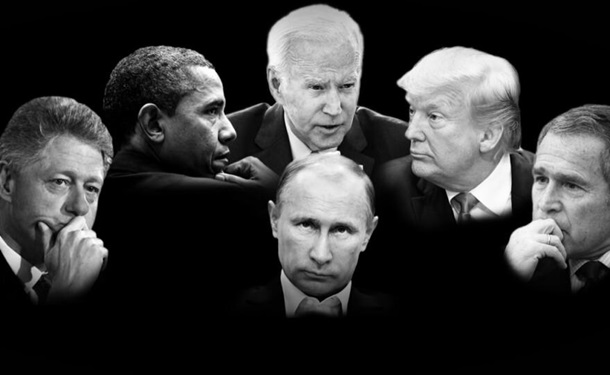
(Photo Credit-Internet The Entire Russiagate)
But even if there was an extensive collection on this particular subject, it would be difficult to know what was true. For example, the closest you can get to Putin's entourage is Putin himself. But even capturing him by intercepting him, saying he wants to elect Trump, may not be convincing. It is difficult to judge intentions because it is impossible to look into the minds of other people. How do you know that Putin spoke truthfully? How do you know that the Russian president did not know that his messages were under US surveillance and did not try to deceive his audience?
Quality control of information is one of the tasks of counterintelligence - to find out how you know what you know, and how trustworthy this information is. There was no quality control for Trump-Russia intelligence. For example, Crossfire Hurricane lead agent Peter Strzok was the FBI's deputy assistant director for counterintelligence. Instead of weeding out incorrect information about Russia, the Crossfire Hurricane team passed Steele's reports to intelligence products. However, the ICA claimed that it was "very confident" in its assessment that "Putin and the Russian government have developed a clear preference for President-elect Trump." What was the basis for this judgment?
According to the ICA:
Most likely, Putin wanted to discredit Secretary Clinton because he had publicly accused her since 2011 of inciting mass protests against his regime in late 2011 and early 2012, and because he resented comments that he almost certainly regarded as demeaning to him.
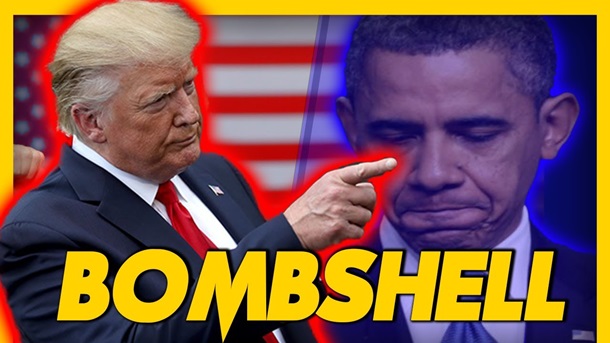
(Photo-Internet -The Bombshell of Russiagate and Obamgate)
"Most likely" and "almost certainly" are rhetorical hedges that show that the assessment could not be made with a "high degree of confidence." Putin may have taken offense at Clinton, but it is impossible to know about it.
The supporting evidence is deteriorating as the ICA tries to penetrate Putin's mind.
Since June, Putin's public comments about the U.S. presidential race have avoided direct praise of President-elect Trump, likely because Kremlin officials believed that any praise from Putin personally would backfire in the United States.
That's absurd. Part of the evidence that Putin supported Trump is that he avoided praising Trump. It is quite difficult to determine intentions from what someone says. However, the ICA claims to have dissected Putin's intentions by what he did not say.
In logic, there is no introductory class of philosophy in which such reasoning would be tested. Still, a group handpicked by Brennan used it as a basis for assessing that Putin helped Trump.
Moscow also viewed the election of President-elect Trump as a way to build an international counterterrorism coalition against the Islamic State in Iraq and the Levant.
This may be an accurate description of how Putin saw Trump. But Trump's predecessor also wanted to coordinate operations against ISIS with Moscow. From this perspective, Trump would represent a continuation of Obama's ISIS policy. Why does this make Trump's victory suspicious to Obama's intelligence firms?
Curious inaccuracies in the Russian RT network
The ICA also pointed to documentary evidence of Putin's intentions: English-language media owned by the Russian government, the Sputnik news site and the RT network were critical of Clinton.
Russian state media made increasingly favorable comments about President-elect Trump as the 2016 U.S. general and primary election campaigns progressed, consistently offering negative coverage of Secretary Clinton's activities.
Curiously, just days before the election, a whistleblower sent by the U.S. government after the Trump campaign praised the Democratic candidate in an interview with Sputnik. "Clinton would be best suited for U.S.-U.K. relations and for relations with the European Union," Stephan Halper told Kremlin-directed media. "Clinton is famous, deeply experienced and predictable. The U.S.-U.K. relationship will remain stable regardless of the winner, though Clinton will be less disruptive over time."
The ICA includes a seven-page appendix dedicated to RT, a central node, according to the document, the Kremlin's efforts to "influence politics, fuel discontent [sic ] the U.S."
Adam Schiff appeared on RT in July 2013. He advocated "making the FISA court much more transparent so that Americans can understand what is being done on their behalf in the name of national security, so that we can have a more informed debate about the balance between privacy and security."
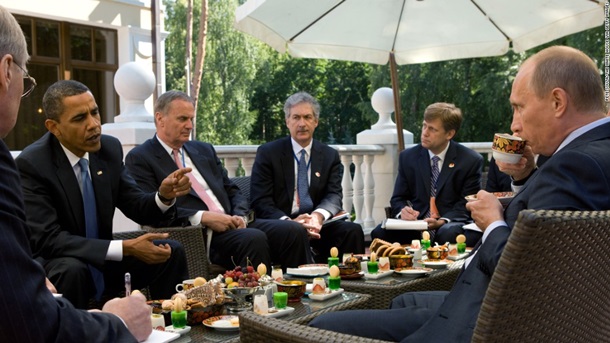
(Photo-Internet- Obama on a Lunch with Putin)
According to the ICA, RT editor-in-chief Margarita Simonyan is the main propagandist. The document does not mention that Simonyan heads another Moscow-based media initiative, " Russia Beyond the Headlines", a news supplement inserted into dozens of leading Western newspapers, including the New York Times. Over the past ten years, Russia Beyond the Headlines has been sent to millions of American homes. By contrast, RT's market share in the U.S. is so small that it can't qualify for Nielsen ratings. Virtually no one in the United States watches it.
If the logic of Brennan's hand-picked team is taken seriously, it would mean that the publishers of the New York Times played an important role in Russia's coordinated efforts to elect Donald Trump.
"It was an operation to destroy Trump"
Nunes even then understood the purpose of Obama's dossier. "In December, Devin figured out what was going on," Langer says. "It was an operation to bring down Trump."
There was no evidence that any Trump employee had done anything wrong to the Russians, and Nunes was losing patience. "We had serious things that the committee wanted to do," he says. "With the election of Trump, we could do something important, for example, with China."
Still, it was important for HPSCI to maintain control of the Russian investigation. Otherwise, Democrats and Republicans, who will never be trump cards, are likely to be tempted to convene a bipartisan commission to investigate Russian meddling — with the goal of turning him into Trump.
"Before they started putting forward the idea of a special counsel, the main idea was a special commission like the 9/11 Commission," Langer says. It was the outgoing Secretary of State, John Kerry, who first made the proposal.
The challenge was to change the dynamics of power. "In a normal committee," says Langer, "the majority has power, and that has happened to us. They wanted to strip us of power and make it fifty-fifty."
"Bipartisan" was a euphemism for "anti-Trump." "That would be a complete joke," Nunez says. "A combination of guerrilla hacks on the left and people who hated Trump on the right."
The Democrats, led by Schiff and Senate Minority Leader Chuck Schumer, were joined by the late John McCain, the most active of Never Trump Republicans. After the election, the Arizona senator instructed his aide, David Kramer, to deliver a copy of Comey's Steele Dossier.
"God only knows who they would populate this committee with," Núñez says. "Anyone they can control. It would be a strange show.
House Speaker Paul Ryan defended the independence of the HPSCI. On the Senate side, the chairman of the Intelligence Committee, Richard Barr, had only one move. To reject demands for an independent commission, he effectively handed over control of the Senate investigation to his vice chairman, Democrat Mark Warner.
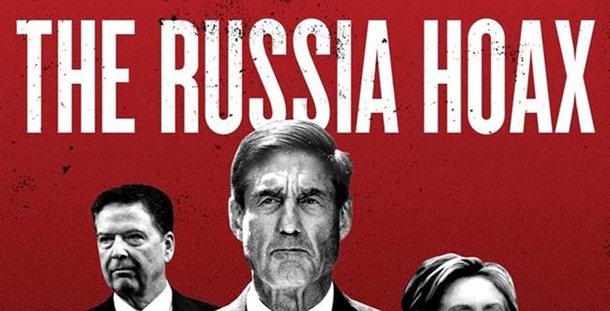
(Photo-internet-Is it Just a Hoax or more than that)
No evidence of collusion years later
Still, Nunes believed that all the talk about Trump and Russia was a waste of time. "They kept promising us evidence of collusion, week after week, and they didn't come up with anything."
Nunes' disdain for the ICA forced the Crossfire Hurricane team's hand. "Around the time they released the ICA, they kept saying that we were waiting for something that could show us, something important that was coming in," he says. "They said it was some significant figure that they couldn't track down yet."
But the FBI knew exactly where his missing link was, evidence of what they thought would convince hardened skeptics like Nunez that collusion was real. They shouldn't have chased him because he was sitting at home in Chicago. He agreed to a voluntary interview on January 27 without a lawyer because he had no idea what the FBI had in store for him.
The Crossfire Hurricane team figured out how they were going to create the Trump adviser they used to launch the investigation in July 2016: George Papadopoulos.
Prof (Dr) Ratnesh Dwivedi is based in India and is an Ex VC*Awarded Academic*Journalist*Intel & Def*NASA Proposal Reviwer & Prin. Investigator*VP-501(c)3 US Army Vet Org*Bush Center Mem*Country Dir for Ind:ESJ-Paris*Board Member with Nobel Laureates*Russian Gov Fellow@UrFU. He can be contacted at ratnesh.dwivedi@yahoo.com)
Рубрика "Блоги читачів" є майданчиком вільної журналістики та не модерується редакцією. Користувачі самостійно завантажують свої матеріали на сайт. Редакція не поділяє позицію блогерів та не відповідає за достовірність викладених ними фактів.